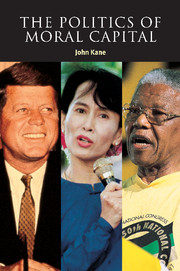Book contents
9 - Aftermath
Published online by Cambridge University Press: 22 September 2009
Summary
There is only one nation in the world which is capable of true leadership among the community of nations, and that is the United States of America.
Jimmy CarterNixon was deeply conscious of the centrality of the presidency, not just as a functioning part of the American political system but as the symbolic heart of that system and of the nation itself. He banked on the extraordinary respect normally accorded the office to see him through the “horrors” that began to unfold after April 1973 – the revelations of lies, cover-ups, abuses of power, illegalities, corruption and sheer mean-spiritedness. But Nixon's actions and deceits, like those of Johnson before him, had squandered much of that inherent respect. They had fallen victim of the fact that presidential prestige and the expectations placed on presidents are inadequately matched by presidential power, and succumbed to the omnipresent temptation to circumvent or overcome the legal and constitutional obstacles to action – by deceit, by assertion of novel prerogatives and by illegalities. Faced with difficult and often contradictory political imperatives, they put at hazard the office's moral capital and set in motion events that fractured not just trust in the presidency, but an essential article of American self-faith.
The legacy they left succeeding presidents was, therefore, a complex and unhappy one. As well as all the common difficulties of government and economy that administrations must manage, Nixon's successors had to cope with the problem of national healing. This involved three issues.
- Type
- Chapter
- Information
- The Politics of Moral Capital , pp. 218 - 234Publisher: Cambridge University PressPrint publication year: 2001

